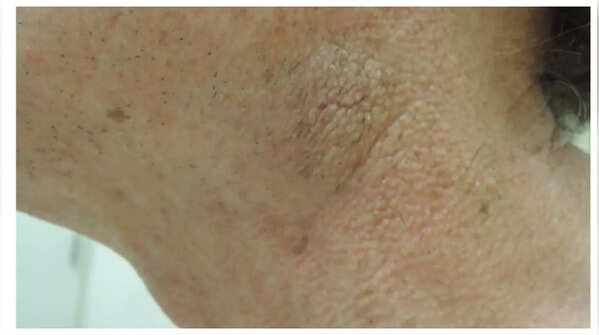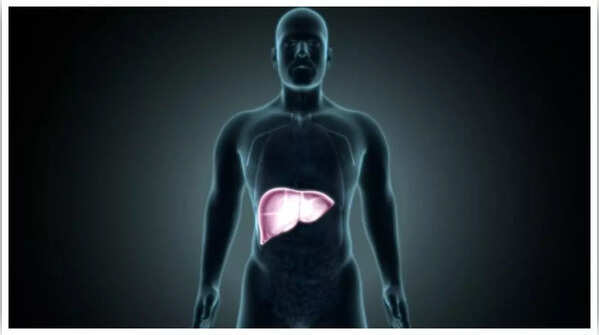Liver disease encompasses various conditions that impair the liver's function, often stemming from genetics, viral infections, lifestyle factors like poor diet and alcohol consumption, and even obesity. The insidious nature of liver disease lies in its subtle early symptoms, making timely detection a challenge. However, being aware of these often-ignored signs can be crucial for early intervention.

Experiencing unrelenting tiredness, even after adequate rest, could signal an underlying liver problem. When the liver is compromised, its ability to filter toxins from the bloodstream diminishes. This accumulation of toxins can lead to persistent weakness and exhaustion, distinct from typical everyday tiredness.

A diminished appetite or persistent nausea can also indicate early liver issues. The liver plays a vital role in digestion and metabolism, and when damaged, it can disrupt the body's ability to process food effectively. This disruption can manifest as a loss of appetite, feeling sick after meals, or experiencing digestive upset.

Discomfort or pain in the upper right abdomen, just below the ribs, where the liver is located, is another potential early warning sign. The pain may present as a dull ache or soreness, with fluctuating intensity over extended periods. This symptom is easily dismissed or mistaken for other digestive issues like indigestion.

Itchy skin, unrelated to allergies or dryness, can be an overlooked indicator of liver problems. When the liver is damaged, bile salts can accumulate in the bloodstream, irritating skin nerves and causing persistent itching throughout the body.

Swelling or puffiness in the legs and ankles could point to impaired liver function. A healthy liver produces proteins that maintain fluid balance in blood vessels. When damaged, fluid can leak into surrounding tissues, causing swelling known as edema.

The subtle and easily mistaken nature of early liver disease symptoms often leads to them being overlooked. These symptoms can mimic common ailments like general tiredness, stomach issues, or skin irritations. The liver's remarkable ability to repair itself can also cause symptoms to fluctuate, making people less likely to seek medical attention. Ignoring these early signs can allow the disease to progress silently, potentially leading to severe conditions such as cirrhosis, liver failure, or even liver cancer.
Disclaimer: This article provides general information and should not be considered as medical advice. Consult with a healthcare professional for any health concerns.
Older articles
 Hair Oil vs. Hair Serum: Choosing the Right Treatment for Your Hair Type
Hair Oil vs. Hair Serum: Choosing the Right Treatment for Your Hair Type
 New Zealand Announces Packed Home Cricket Schedule Featuring Australia, England, West Indies, and South Africa
New Zealand Announces Packed Home Cricket Schedule Featuring Australia, England, West Indies, and South Africa
 Heart Attack Warning: Key Signs That Can Appear Weeks in Advance
Heart Attack Warning: Key Signs That Can Appear Weeks in Advance
 Steven Smith Targets Test Return After Unique Baseball Cage Recovery in New York
Steven Smith Targets Test Return After Unique Baseball Cage Recovery in New York
 5 Subtle Signs of Cervical Cancer Women Often Miss
5 Subtle Signs of Cervical Cancer Women Often Miss
 Earth's Spin Accelerating: Scientists Predict Potential 'Negative Leap Second' by 2029
Earth's Spin Accelerating: Scientists Predict Potential 'Negative Leap Second' by 2029
 Daren Sammy Fined, Receives Demerit Point for Third Umpire Criticism After Test Match
Daren Sammy Fined, Receives Demerit Point for Third Umpire Criticism After Test Match
 Bollywood's Enduring Fascination with Indian Mythology: From Ramayana to Modern Blockbusters
Bollywood's Enduring Fascination with Indian Mythology: From Ramayana to Modern Blockbusters
 SA20 Teams Allowed Six Player Retentions, Get Salary Cap Boost Ahead of Season 4 Auction
SA20 Teams Allowed Six Player Retentions, Get Salary Cap Boost Ahead of Season 4 Auction
 Gambhir Defends India's Tailenders After Headingley Batting Collapses; Cites Missed Catches as Key Factor in Test Loss
Gambhir Defends India's Tailenders After Headingley Batting Collapses; Cites Missed Catches as Key Factor in Test Loss